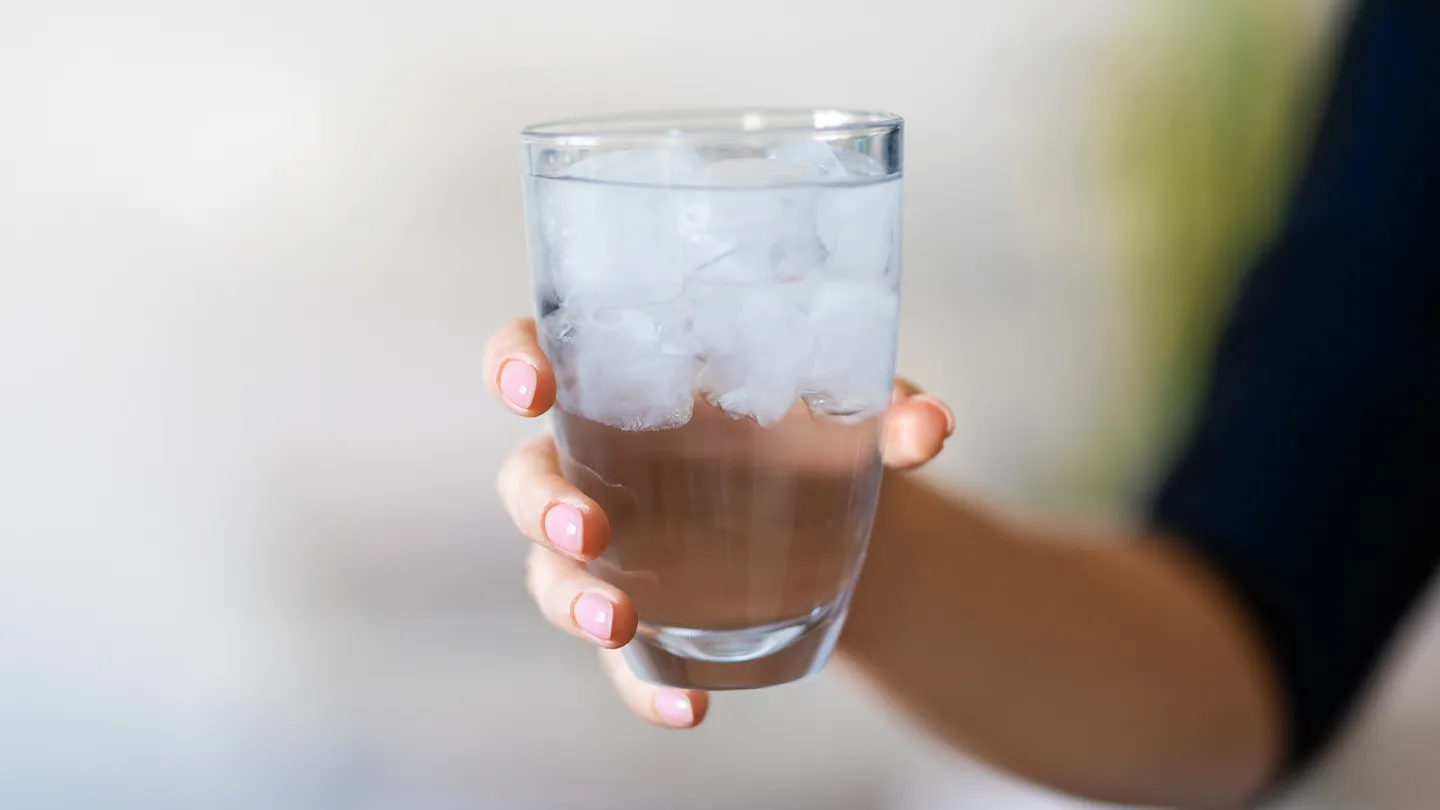With nearly half of U.S. adults trying to lose weight, it’s no surprise we’ve been blasted with a steady fire hose of diet trends and hacks promising extraordinary results. One such trend is the “ice hack for weight loss,” or the Alpine Ice Hack.
You may have come across this trend on TikTok or while searching for health and fitness information online. The idea is if you drink ice water while taking a dietary supplement called Alpilean, you can jump-start your weight loss. However, many health professionals aren’t convinced. “The Alpine Ice Hack is not an effective weight loss solution,” says Blanca Garcia, RDN. “It’s basically another weight loss pill, [and] like any supplement, it’s not regulated by the Food and Drug Administration.”
So what gives? Here, we explore the “ice hack” phenomenon, its bold claims, and a scientific perspective in order to separate fact from fiction.
What the Ice Hack Claims
If you’ve been secretly hoping to discover a magic bullet on your weight loss journey, this one may sound pretty tempting.
On its website, Alpilean claims that low inner-body temperature is associated with slow metabolism and obesity. The company says its supplement regulates your body temperature, thereby raising your metabolism and thus increasing fat-burning.
Proponents of the ice hack say the supplement can work even better if you take it with ice water. This is based on the idea that the body will naturally burn additional calories trying to raise its temperature after being exposed to cold, a process called thermogenesis.
So together, the supplement and the cold water exposure are said to have an enhanced temperature-raising, calorie-burning effect. Alpilean claims that taking one capsule daily with a cup of cold water will allow you to “dissolve fat even when you are sleeping.”
Debunking the Ice Hack
While the ice hack may sound intriguing, it’s essential to approach these claims with a critical eye. Here’s a closer look at a few of them.
The “Miracle” of Thermogenesis
At the heart of the ice hack lies the promise of thermogenesis as the key to effortless weight loss. But what is thermogenesis, and why is it such an attractive concept for those wanting to shed unwanted pounds?
Thermogenesis is the metabolic process that produces heat within the body. It occurs in various tissues, including brown adipose tissue (known as brown fat), and significantly regulates body temperature and energy expenditure. Yet, while thermogenesis is a genuine metabolic process, and one study says it could help manage obesity, thermogenic supplements are also said to have a limited effect on weight loss.
“Temperature-Raising” Ingredients
The Alpilean supplement ingredients include dika nut, golden algae (fucoxanthin), drumstick tree leaf, bigarade orange, ginger root, and turmeric root. However, the idea that this combination of ingredients can raise body temperature is not supported, says nutritionist Kimberly Gomer, RD, former director of nutrition for Pritikin Longevity Center and Spa in Florida. “There are no trials of this combination of supplements in one pill [and] no evidence is provided to back up the temperature-raising claims of this proprietary complex,” she explains.
The Presumed Link Between Lower Inner-Body Temperature and Fat
Some research contradicts Alpilean’s claim that lower inner-body temperature leads to more body fat. One older study pointed out that having a low core-body temperature isn’t associated with obesity, while a newer study — ironically linked from Alpilean’s site — asserts that body temperature actually increases with weight gain.
Are Diet Pills Safe?
While the Alpilean sales pitch may be exciting, it’s essential to exercise caution when considering the use of this type of product. The credibility and safety of diet pills can vary significantly, and their effectiveness in promoting sustainable weight loss remains a topic of debate within the scientific community.
“The Food and Drug Administration does not regulate diet pills,” says Garcia. “Therefore, even though most claim to adhere to the highest standards, no agencies are actually checking. It’s unknown if any diet pill is safe.”
The Need for a Well-Rounded Weight Loss Approach
According to a 2021 review, healthy weight loss requires a sustainable approach that includes a calorie deficit, exercise, and informed decision-making when it comes to your diet. While quick fixes and fad diets are appealing, adopting a well-rounded approach to weight loss is essential.
“The best and most sustainable way to lose weight is to meet with a registered dietitian who can review your current eating habits and find ways to adjust to healthier options while still eating foods you like,” says Garcia. “Food is a big part of life, and severely restricting it or taking products that may not be safe can alter the balance in the body and create a yo-yo effect with weight loss.”
In the era of viral online trends, the “ice hack for weight loss” has captured the imagination of those looking for a shortcut to their fitness goals. However, a different story unfolds when we turn to science and expert opinions — the Alpine Ice Hack may not be the magical solution it’s made out to be.
Rather than chasing trends, prioritize evidence-based weight management strategies and seek guidance from healthcare experts. The truth behind weight loss lies not in quick fixes but in well-informed, sustainable lifestyle choices that promote your overall health and well-being.
Editorial Sources and Fact-Checking
- Attempts to Lose Weight Among Adults in the United States, 2013–2016. Centers for Disease Control and Prevention.
- Lynes MD, Kodani SD, Tseng Y. Lipokines and Thermogenesis. Endocrinology. July 24, 2019.
- Huo C, Song Z, Yin J, et al. Effect of Acute Cold Exposure on Energy Metabolism and Activity of Brown Adipose Tissue in Humans: A Systematic Review and Meta-Analysis. Frontiers in Physiology. June 28, 2022.
- Clark J, Welch S. Comparing Effectiveness of Fat Burners and Thermogenic Supplements to Diet and Exercise for Weight Loss and Cardiometabolic Health: Systematic Review and Meta-Analysis. Nutrition and Health. January 11, 2021.
- Heikens MJ, Gorbach AM, Eden HS, et al. Core Body Temperature in Obesity. The American Journal of Clinical Nutrition. May 2011.
- Bastardot F. Association of Body Temperature With Obesity: The CoLaus study. International Journal of Obesity. September 24, 2018.
- Dietary Supplements for Weight Loss. National Institutes of Health.
- Kim JY. Optimal Diet Strategies for Weight Loss and Weight Loss Maintenance. Journal of Obesity and Metabolic Syndrome. March 30, 2021.

